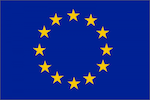All sessions will take place in Auditório J.J. Laginha, Edifício Sedas Nunes, ISCTE-IUL
September 28
8h30 – 9h00 Reception and Registration
9h00 – 9h45 Opening Ceremony
Luís Reto, Rector ISCTE-IUL
Luís Nuno Rodrigues, Director CEI-IUL
Laura Nuño Goméz, Principal Investigator MAP-FMG & Project Coordinator, Universidad Rey Juan Carlos
Clara Carvalho, Project Coordinator MAP-FGM, CEI-IUL
9h45 – 10h15
Catarina Marcelino, Secretary of State for Citizenship and Equality
10:15 – 11:15 Keynote Speaker
Fatou Sarr Sow (Institut Fondamental de l’Afrique Noire – Senegal)
11:15 – 11:30 Coffee break
11:30 – 13:30 Roundtable 1 – Models of Combat and Prevention of FGM/C in West Africa
Chair: Michela Fusaschi (Università degli Studi Roma Tre)
Speakers:
Maire ni Mhordha – “A critical analysis of the Tostan approach to FGC.”
Adriana Kaplan – “Transnational Observatory of applied research to knowledge transfer in cascade”
Abdoulaye Doro Sow – “Cultural counter-argumentation as cultural strategy to combat the practice of FGM”
13:30 – 14:30 Lunch break
14:30 – 16:30 Roundtable 2 – Implementation of Human Rights Conventions and Treaties in West Africa
Chair: Els Leye (RHEA & Vrije Universiteit Brussels)
Speakers:
Annemarie Middelburg – “FGM/C as a human rights violation: implementation of human rights treaties in Senegal”
Alpha Amadou Bano Barry – “Strategies and Actions of Promotion of the abandonment of excision and the socioanthropological determinants of excision in Guinea
Fatumata Djau Baldé – “Female Genital Mutilation, a question of human rights of women in Guinea Bissau”
16:30 – 17:00 Coffee break
17:00 – 18:30 Documentary screening:
“Este é o meu corpo” (“This is my body”) (Inês Leitão&Daniela Leitão)
September 29
09:30 – 11:00 Roundtable 3 – The fight against FGM/C as a form to promote gender equality
Chair: Ana Lúcia Teixeira (FCSH-UNL & ONVG)
Speakers:
Carla Martingo – “Voices and leaderships for the ending of FGM”
Filomena Djassi – “Promoting behaviour change towards the eradication of Female Genital Mutilation”
Alexandra Alves Luís – “Girls and young women living with FGM/C in Portugal – needs and expectations”
11:00 – 11:30 Coffee break
11:30 – 13:00 Roundtable 4 – Institutional responses in Health
Chair: Alice Frade (P&D Factor)
Speakers:
Comfort Momoh – “Treating and caring for girls and women living with FGM – United Kingdom Response”
Owolabi Bjalkänder – “Treating and caring for girls and women living with FGM/C – Sierra Leone Response”
Michela Villani – “Reparative Approaches in Healthcare: Taking in Account Women’s Meanings of « Reparation » After FGM in Switzerland and France”
Nora Salas Seoane – “Empowering primary care professionals to prevent FGM in a municipality of Catalonia”
13:30 – 14:30 Lunch break
14:30 – 16:30 Final Roundtable: Institutions Responding to FGM/C
Chair: Clara Carvalho (ISCTE-IUL)
Speakers:
Ana Carla Correia, Portuguese Ministry of Health / Directorate-General of Health (DGS)
Helena Leitão, GREVIO (Group of Experts on Action against Violence against Women and Domestic Violence)
Mónica Ferro, Director of the UNFPD Office in Geneva
Teresa Fragoso, President of Gender Equality Commission (CIG)
Catarina Marcelino, Secretary of State for Gender Equality
Co-funded by the Rights, Equality & Citizenship Programme of the European Union


